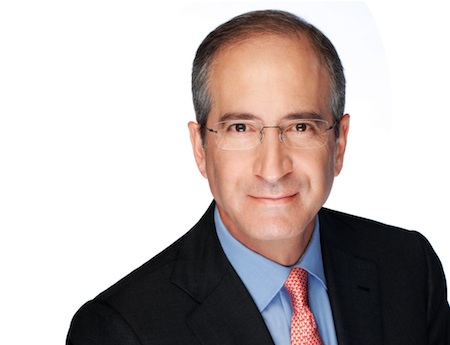Comcast's Roberts: NYT Misreads Market

The smarter way to stay on top of broadcasting and cable industry. Sign up below
You are now subscribed
Your newsletter sign-up was successful
Comcast chairman and CEO Brian Roberts said Wednesday that the New York Times was entitled to their opinion, but that the deal was not going to create a colossus in the media space that would have too much power over video and Internet access.
That came in an interview with Comcast-owned CNBC during the Code Conference and following the Times editorial this week opposing the deal.
Roberts said he did not think the paper's opposition would make the deal harder to sell and suggested that the paper's reading of the marketplace was off base. "They got a lot of facts that I think they didn't quite look at right." For example, he said, NYT's comparison of the deal to creating a company akin to the pre-breakup AT&T. "In the days of AT&T there was only one phone company," he said. "It is truly an antiquated notion to say there is not competition in video."
He pointed out that Comcast had lost video customers for 26 straight quarters until two quarters ago. "It is a tremendously changing space...and I think they were looking at the wrong thing."
Responding to the criticism of Comcast's broadband sub footprint post merger, Roberts said it was important to remember that they don't compete with each other in broadband, so there will be no reduction in competition when they combine.
He also pointed out that Comcast supports open Internet rules, or at least "the right kind of rules," that allow for investment and innovation. He said those should give consumers confidence that they aren't ever going to be slowed down or blocked.
Talking video, Roberts pointed out that the deal will bring Comcast to about 29% of video subs nationwide, or about where the company was 10 years ago. Talking broadband, he said there is no national market. "It is a local market, and we have competition from the phone company" and wireless and Wi-Fi and "soon Google fiber and other innovations."
The smarter way to stay on top of broadcasting and cable industry. Sign up below
"So, if you come to work at our company, all we care about is competition, competition..." He did not add the third "competition," which would have made it an echo of the mantra of FCC chairman Tom Wheeler. "We don't think there should be an issue with going seven million customers bigger."
Asked about Netflix CEO Reed Hasting's criticism of the peering deal with Comcast and ISP's leverage in those negotiations, Roberts said it is fundamentally a business, rather than a policy, dispute. "He would like all of his traffic, the CDNs—content delivery networks—the first mile, not the last mile, all for free. He has been paying other carriers to do it for him. Every other major traffic provider uses transit or somehow pays someone to get it to the open Internet, and of course he would like it for free, who wouldn't?"
"We don't want to charge Netflix different than any other company, but they do amount to a third of all the bits on the Internet. We want to provide great experiences for our customers and we have to manage that traffic together with them."
He said the deal means they are going to reduce their expenses over the life of the deal, and improved the customer experience.
"I'm not quite sure why that isn't in everyone's interest."
Roberts elaborated on what would be the right kind of open Internet rules. Those would be ones that provide clarity to consumers that the FCC has put "teeth" in openness, but don't reclassify broadband under Title II regs that could regulate "every part of the business" like a last-century phone company.
Roberts said there is not a network openness problem, but that it was important to get rules back in place that "everyone can feel good about."
Roberts would not comment on AT&T/DirecTV beyond saying it illustrates how the media space is changing and the need to be more of a national company—TWC gets Comcast into New York and Los Angeles, the top two markets, for example.
Contributing editor John Eggerton has been an editor and/or writer on media regulation, legislation and policy for over four decades, including covering the FCC, FTC, Congress, the major media trade associations, and the federal courts. In addition to Multichannel News and Broadcasting + Cable, his work has appeared in Radio World, TV Technology, TV Fax, This Week in Consumer Electronics, Variety and the Encyclopedia Britannica.

